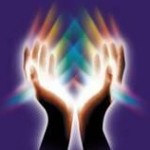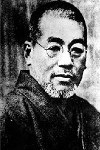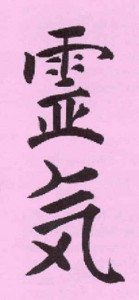Reiki FAQ
What is Reiki?

Reiki is a Japanese healing technique for stress reduction and relaxation—like acupuncture but without needles. Unlike massage, Reiki does not require touch. It is administered by a practitioner who serves as a channel for the healing energy. In effect, Reiki is a synergistic combination of ‘spiritual healing’ and ‘energy healing’ techniques. Reiki is a gentle yet powerful tool of daily self-care, self-empowerment and transformation.
Reiki (pronounced ray-key) is the spiritually guided life force energy within the human body; it permeates every object within the universe. The practice of Reiki is the art and science of channeling this universal life energy to promote holistic wellness. The word Reiki is made of two Japanese words – Rei which means “God’s Wisdom or the Higher Power†and Ki which is “life force energy.†A benign and positive universal life force, some consider Reiki energy “a gift of the Spirit,†or a Higher Power.
Historically, other cultures and religious traditions have understood this universal source as Ki, Chi, Prana, the Holy Spirit, Ruach Elokim, , aura, vitality, charisma, Great Spirit, Goddess, Christ Energy, universal light or “living love.†Though similar to, and compatible with the Christian tradition of laying-on-of-hands-healing prayer, Reiki is considered spiritual, not religious. Reiki is a positive force that can empower us to transform ourselves, each other and the world.
What Happens in a Reiki Session?
Reiki enhances the power of the body to heal itself. Through a set of fixed hand positions, Reiki energy flows through the body, fostering self-awareness and natural healing. During a typical healing session, the Reiki practitioner places her hands just above the body. The energy from the hands is guided slowly from the crown, over the torso to the feet. The Reiki session usually yields a warm, tranquil state of relaxation. Some people experience tingling sensations, light, color and imagery is also common. Everyone’s experience is different; responses can vary from powerful and immediate relief to gradual and subtle improvement over time.
Sometimes a Reiki client experiences a “cleansing crisis.” This is a positive outcome, part of the clearing and balancing process. In the days following a Reiki treatment, it is not unusual to experience some weakness or tiredness, a headache, stomach ache or crying (healing tears). These symptoms are the effects of the body releasing toxins. For best results following a session, engage in loving self-care; relax, take  a warm bath, get more rest, drink plenty of water and eat well and lightly.
Reiki can be done anywhere, anytime, with or without special equipment. A full treatment on a massage table usually lasts between forty minutes and an hour. Some practitioners dress the healing area with scented oils, candles and soothing music. It is also possible to administer treatment on a chair. Even brief spot treatments can be helpful for chronic pain, injury or acute stress. Reiki is safe for everyone—including houseplants and companion animals. Cats especially enjoy Reiki.
Who Needs Reiki?
Although it is not a medical treatment, Reiki is often used in hospitals. Similar in concept to Healing Touch, it is compatible with massage, acupuncture, Western medicine, nursing, Chinese Medicine, chiropractic care and healing prayer. Holistic in nature, Reiki will not adversely interfere with any drug, diagnosis, program or belief system. Reiki practitioners can make diagnoses, administer treatments and guide the energy, but they are channels for the healing— not the power or the source itself.
How is Reiki Learned?
Reiki symbols are passed on to students by Masters in a sacred ritual called an attunement. Through this ritual of initiation, a trained Master teacher attunes the student with sacred symbols thereby opening the energy centers or Chakras. As the Reiki Master increases the frequency of the recipient’s energy, Reiki attunements open a pathway allowing for a flow of Reiki energy. Much like the tuning of a radio, the receiver is tuned into the energy on a higher dimension. In training the practitioner, the traditions, history and ethics of Usui Reiki are also passed on, from Master to student.
Over time, studying and practicing Reiki raises awareness, energetic vibrations, clearing out imbalance and disease. As part of the process of spiritual awakening, the study and practice of Reiki helps to reconnect us to the Universal Life Force. After receiving an attunement the student will be able to use Reiki immediately. Anyone can learn Reiki and once attuned, channels are open for life.
Where Does Reiki Come From?

Reiki is an ancient practice believed to have originated in Tibet.  Thousands of years ago, seers studied energies and developed a system of sounds and symbols for universal healing energies. Various healing systems, which crossed many different cultures, emerged from this single root system. Dr. Mikao Usui rediscovered the root system in the mid- to late 1800s and is the originator of what we today call Reiki. Born to an affluent Japanese family in 1865,  Dr. Usui engaged in a practice of meditation often lasting up to 21 days. While on retreat on Mount Kurama, the symbols that inspired the Usui system were revealed to him. The Sensei Usui began to practice them immediately, first healing a wound on his foot and later using the symbols to heal a variety of ailments. A Buddhist monk and educator who called this system Usui Reiki Ryoho, Usui’s practice spread very quickly throughout Japan.
In Western traditions, “Reiki†refers to both the Universal Life Force Energy and to the Usui system that makes active use of that energy There are now many lineages and schools of Reiki all claiming various gifts and legitimacy but Dr. Mikao Usui is the acknowledged founder, and Usui Reiki is the most widely practiced, established tradition. Reiki ethics emphasize respect, humility, gratitude, personal responsibility, interdependence, and “keeping it in the day.â€
Reiki as a belief system is summarized in the following precepts handed down by founder Dr. Mikao Usui;
Just for today, do not worry.
Just for today, do not anger.
Honor your parents, teachers and elders.
Earn your living honestly.
Show gratitude to every living thing.
